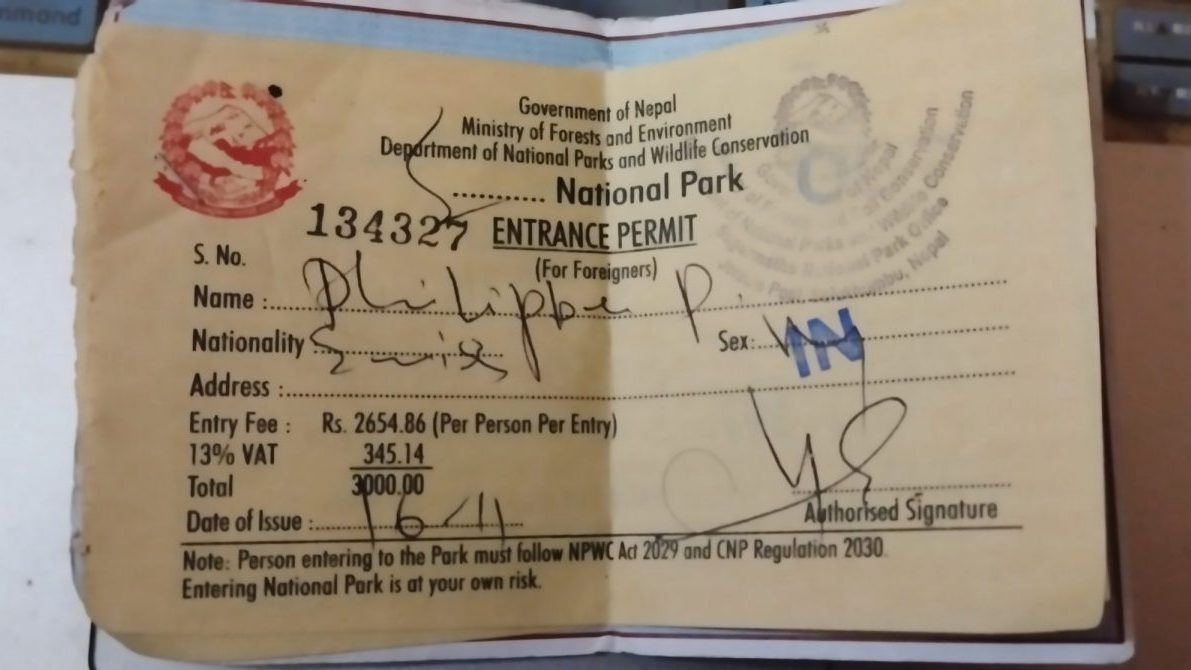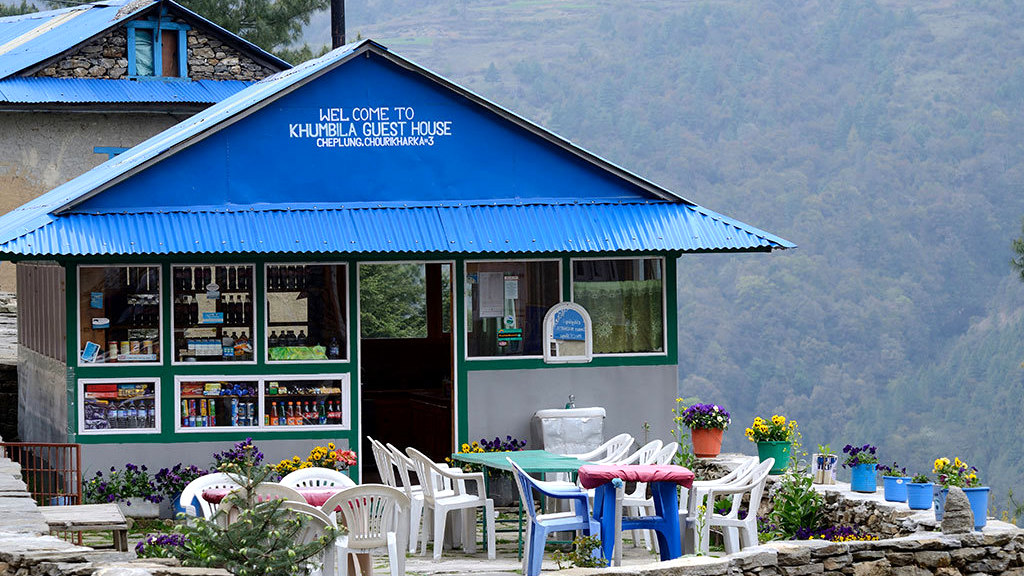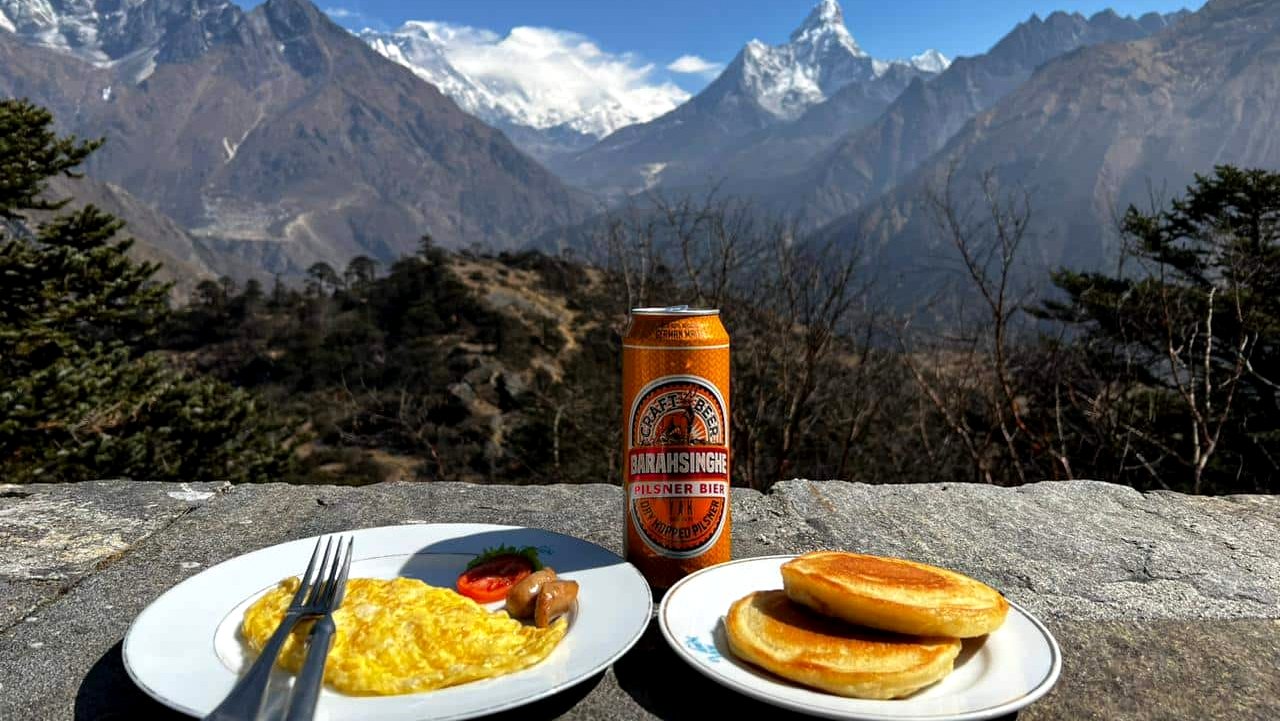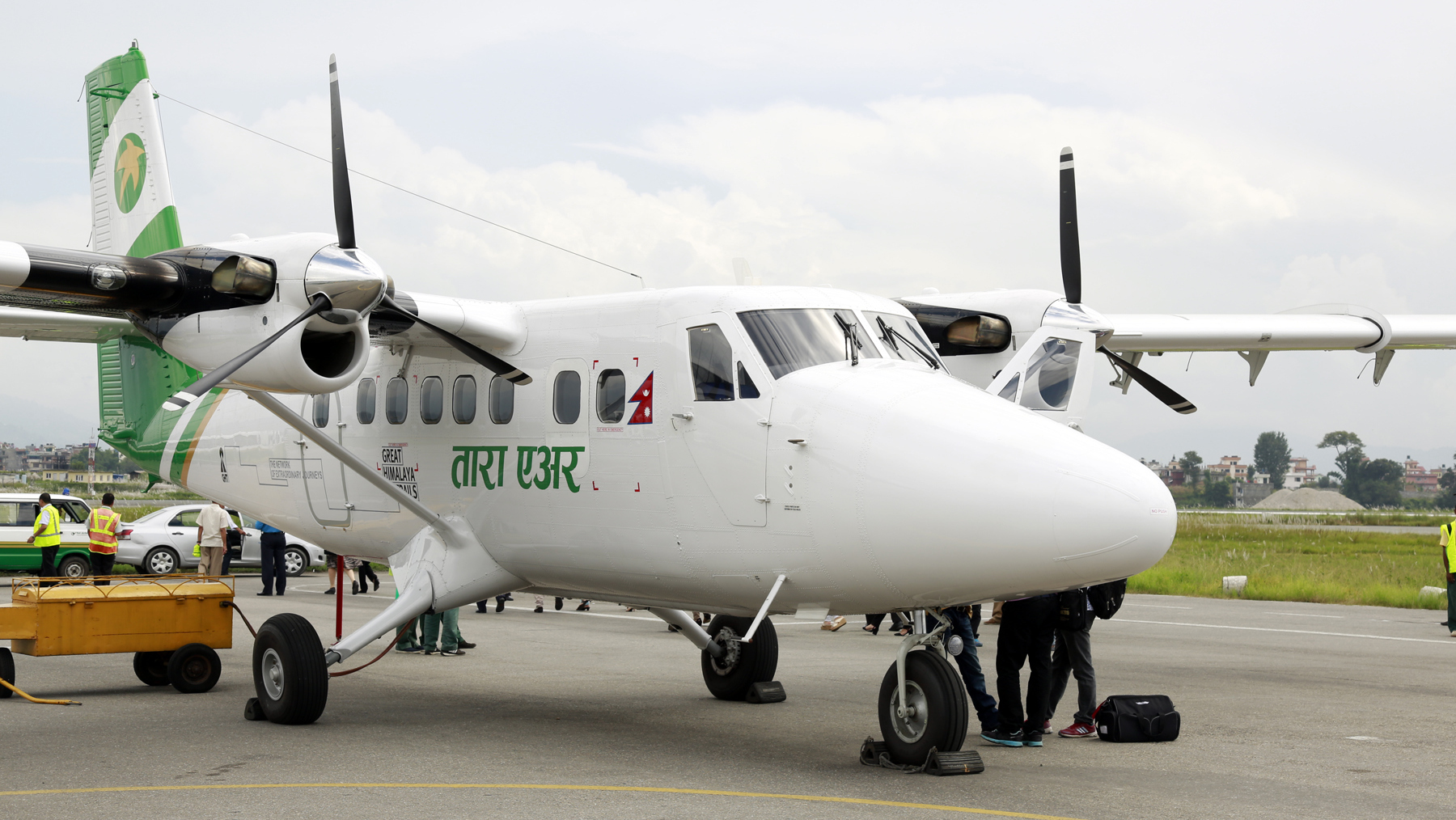Embarking on a trek to Everest Base Camp with Luxury Holidays Nepal is an adventure of a lifetime, but it's essential to understand the general expenses involved in such an expedition. Trekking to the world's highest peak entails a variety of costs, including the Everest Base Camp trek cost, Everest trekking expenses, cost of the Everest Base Camp Trek, Everest trek permits cost, and accommodation costs during the Everest trek. These expenses encompass a range of necessities from permits and accommodation to food, transportation, and guide services. Planning and budgeting for these costs are crucial for a smooth and enjoyable trekking experience. Luxury Holidays Nepal, with its expertise and meticulous planning, ensures that every aspect of your journey is well accounted for, offering transparent and comprehensive cost breakdowns to help you prepare for this remarkable journey.
We pride ourselves on being the premier choice for trekkers looking to explore Everest Base Camp. Our deep understanding and management of the General Expenses During Everest Trekking set us apart as the best in the industry. We meticulously plan every detail, from Everest Base Camp trek costs to Everest trekking expenses, ensuring that our clients have a clear and comprehensive understanding of the financial aspect of their journey. Our expertise in navigating the Cost of the Everest Base Camp Trek, including Everest trek permits cost and accommodation costs during the Everest trek, allows us to provide unmatched value and quality in our packages. Choosing Luxury Holidays Nepal means opting for a trekking experience where budgeting and expense management are handled with utmost precision and care, ensuring a seamless and memorable adventure to the top of the world.
Permit Costs

-
Sagarmatha National Park Permit: This permit is mandatory for everyone trekking in the Everest region, as it contributes to the conservation and maintenance of the park. The cost can vary, but it's essential for legal access to the area, ensuring that trekkers are trekking responsibly in this protected region.
-
TIMS Card (Trekkers' Information Management System): The TIMS card is another essential requirement. It's designed to ensure the safety and security of trekkers by maintaining a record of all individuals in the trekking areas. This system helps in managing and monitoring trekker movement and assists in case of emergencies.
-
Local Area Permits: Depending on the specific route and regions covered in your trek, there might be additional local area permits required. These permits are often used for local community development and environmental conservation efforts.
-
Processing Fees and Arrangements: The process of obtaining these permits usually involves some administrative work. Trekking companies like Luxury Holidays Nepal handle the procurement and management of these permits, ensuring that all legalities are covered before the trek begins. This service might include additional processing fees.
It's important to note that these permit costs are subject to change and can vary based on policies set by the Nepalese government and local authorities. We stay updated on these changes to provide accurate and comprehensive cost breakdowns to their clients, ensuring a hassle-free trekking experience.
Accommodation Expenses
Accommodation expenses are a significant part of the budget when trekking to Everest Base Camp. Here's a breakdown of what to expect in terms of accommodation costs:

-
Type of Accommodation: The Everest region primarily offers teahouses and lodges for trekkers. These range from basic facilities to more comfortable lodges in some locations. The cost varies depending on the level of comfort and amenities provided.
-
Cost Variation by Location: Accommodation costs can vary significantly along the trek route. The more remote the location, the higher the cost might be due to the challenges in transporting supplies. Higher altitudes often have more basic accommodations, reflected in the cost.
-
Seasonal Price Fluctuations: Prices for accommodation can fluctuate based on the trekking season. During peak seasons (March-May and September-November), prices tend to be higher due to increased demand. Off-season treks might offer lower costs but come with their own set of challenges like harsher weather.
-
Included Amenities: Basic accommodation usually includes a bed, shared bathroom facilities, and sometimes a communal dining area. Some lodges offer hot showers and charging stations for an additional fee. We often include the best available accommodation within the trekking package, ensuring comfort after a day of trekking.
-
Booking in Advance: During peak trekking seasons, securing accommodation can be challenging due to high demand. Luxury Holidays Nepal typically arranges accommodations in advance to ensure availability and comfort for their clients.
-
Extra Costs: Additional costs may include services like hot showers, internet access, charging electronic devices, and laundry services. These are usually not included in the basic room cost and can add up, so it’s important to budget for them.
-
Meal Costs: While some packages might include meals with accommodation, it’s important to clarify what is included. Additional charges for meals and beverages not included in the package should be considered.
Luxury Holidays Nepal carefully considers these factors to provide their clients with comfortable and convenient accommodation options, ensuring that the accommodation expenses are transparent and well-managed throughout the trek.
Food and Drink Costs

-
Meal Costs at Teahouses: The teahouses and lodges along the trekking routes typically offer a menu of local and international dishes. Prices for meals increase with altitude due to the higher cost of transporting goods to these remote locations.
-
Typical Food Options: The menu usually includes items like dal bhat (a traditional Nepali meal), pasta, rice dishes, soups, and occasionally Western dishes like pizza and sandwiches. Breakfast often comprises porridge, eggs, and bread.
-
Drinking Water: It's crucial to stay hydrated during the trek, but buying bottled water can be expensive and environmentally unfriendly. Trekkers are encouraged to use water purification tablets or portable filters. Some teahouses also offer boiled water for a fee.
-
Hot Beverages: Teahouses serve a variety of hot drinks, including tea, coffee, and hot chocolate. These beverages are comforting after a long day of trekking but can add to the overall cost.
-
Snacks and Additional Food Items: Snacks like chocolate bars, cookies, and dried fruits are available but can be pricey. Trekkers often bring snacks from Kathmandu or purchase them at lower altitudes where they are cheaper.
-
Alcoholic Beverages: It's generally advised to avoid alcohol while trekking at high altitudes due to its effects on the body. If consumed, it can be a significant addition to the budget as prices are higher in the mountains.
-
Special Dietary Requirements: If you have specific dietary needs, such as vegetarian, vegan, or gluten-free options, it's important to communicate this to Luxury Holidays Nepal. While options may be limited, most teahouses try to accommodate dietary requests, which might affect the cost.
We often include meals in their trekking packages, providing an estimate of additional costs for drinks and snacks. They ensure that trekkers are well-informed about the food and drink expenses, helping to manage the budget effectively throughout the journey.
Transportation Fees

-
Kathmandu to Lukla Transportation: The most common starting point for the Everest trek is Lukla and the primary mode of transportation to Lukla is by air. The flight from Kathmandu to Lukla is often a significant part of the transportation budget due to the remote location and the operational challenges of flying in the mountainous area.
-
Alternative Overland Routes: For trekkers seeking an alternative to flying, there are overland routes available, which involve a combination of bus and jeep rides to the trek starting point. This option is usually more time-consuming but can be more cost-effective.
-
Cost Variation by Season: Flight costs can vary depending on the season, with prices generally higher during the peak trekking months due to increased demand.
-
Transportation in Kathmandu: Before and after the trek, transportation costs in Kathmandu may include airport transfers, hotel shuttles, and taxis to various tourist sites or trekking preparation meetings.
-
Private Vehicle Options: We offer private vehicle options for certain parts of the journey, such as transportation to and from the airport or within Kathmandu. Private vehicles offer comfort and convenience but at a higher cost than public transportation.
-
Internal Flights and Helicopter Rescues: In some cases, trekkers may opt for internal flights for sightseeing or in emergency situations like health issues where helicopter rescue may be necessary. These are significant additional costs and are typically not included in standard trekking packages.
-
Return Journey: The cost of returning from Lukla to Kathmandu is another factor to consider. This is usually a part of the initial flight booking but should be confirmed.
-
Travel Insurance Coverage: It's important to check if your travel insurance covers transportation costs, especially in the case of emergency evacuations or cancellations.
Luxury Holidays Nepal ensures that all transportation arrangements are made efficiently, offering various options to suit different budgets and preferences. They provide clear breakdowns of transportation costs in their trekking packages, helping clients plan their finances effectively for their Everest Base Camp adventure.
Guide and Porter Charges
-
Guide Fees: Hiring a knowledgeable and experienced guide is crucial for a safe and informative trekking experience. Guides not only lead the way but also provide valuable insights into the local culture, geography, and history. Their fees typically include their wages, insurance, as well as their food and accommodation during the trek.
-
Porter Charges: Porters play an essential role in carrying trekking gear and personal items, allowing trekkers to enjoy the journey without the burden of heavy backpacks. Like guides, porter charges include their wages, insurance, and living expenses during the trek.
- Number of Trekkers per Guide/Porter: The cost can also depend on the ratio of trekkers to guides and porters. A smaller group may require a higher per-person fee for guide and porter services compared to a larger group where the costs are shared among more trekkers.
-
Tips for Guides and Porters: While not mandatory, tipping guides and porters at the end of the trek is customary and greatly appreciated. The amount can vary, but it's a gesture to acknowledge their hard work and assistance.
-
Skill and Experience Level: The cost of hiring a guide and porter can also vary based on their experience and skill level. Highly experienced guides who speak multiple languages and have extensive knowledge of the region may charge more.
Luxury Holidays Nepal ensures that all guides and porters hired are adequately compensated and insured. They provide transparent information about these costs, allowing trekkers to budget accordingly and ensure they are contributing to the sustainable and ethical treatment of the local workforce.
Personal Expenses
-
Snacks and Extra Meals: While main meals are usually included in trekking packages, trekkers often spend extra on snacks, additional meals, or special dietary items not covered in the package.
-
Drinks: Expenses for beverages, especially alcoholic drinks, hot chocolate, or specialty coffees, are generally not included in the package and can add up, particularly at higher altitudes where prices are higher.
- Souvenirs and Gifts: Many trekkers like to purchase local handicrafts, clothing, or other souvenirs from the Everest region. These costs can vary significantly depending on what and how much you buy.
-
Charging Electronic Devices: In some teahouses, charging electronic devices like cameras or smartphones may incur small fees. The cost typically increases with altitude.
-
Internet Access: While some teahouses offer Wi-Fi, it often comes with a charge, especially in more remote areas.
-
Hot Showers: Some teahouses charge extra for the use of hot shower facilities, which can be quite appealing after long days of trekking.
-
Laundry Services: Doing laundry during the trek can incur additional costs, though many trekkers choose to wash their own clothes to save money.
-
Telephone Calls and Satellite Internet: Making international calls or using satellite internet services (in places where regular internet is unavailable) can be expensive.
- Health and Hygiene Supplies: Purchasing additional health and hygiene supplies, including first-aid items, water purification tablets, or toiletries, can also add to personal expenses.
Luxury Holidays Nepal advises trekkers to budget for these personal expenses, as they can vary widely and impact the overall cost of the trek. Planning and setting aside a reasonable amount for these expenses ensures a more comfortable and stress-free trekking experience.
Travel Insurance
-
High Altitude Coverage: Standard travel insurance policies may not cover activities at high altitudes, like trekking to Everest Base Camp. It’s important to choose a policy that specifically covers trekking up to at least 5,600 meters (18,372 feet), the altitude of Everest Base Camp.
-
Medical Coverage: Ensure that the insurance policy includes comprehensive medical coverage. This should cover any medical treatment required during the trek, including conditions related to high-altitude sickness.
-
Emergency Evacuation and Rescue: Perhaps the most crucial aspect of travel insurance for an Everest trek is coverage for emergency evacuation and helicopter rescue. These services are extremely expensive in Nepal, and having insurance cover these costs is essential.
-
Trip Cancellation and Interruption: Coverage for trip cancellation and interruption can reimburse expenses if your trek is canceled or cut short due to unforeseen circumstances like illness, injury, or severe weather.
-
Repatriation Coverage: In the unfortunate event of a serious injury or death, repatriation coverage is important for transportation back to your home country.
-
Lost, Stolen, or Damaged Gear: Insurance that covers the loss, theft, or damage of personal belongings and gear can be useful, especially considering the remote nature of the trek and the reliance on essential trekking gear.
-
Cost of Premiums: The cost of a suitable travel insurance policy can vary based on the coverage extent, the trekker’s age, and the duration of the trek. It’s a necessary expense and should be factored into the overall budget for the trek.
-
Provider Reliability: Choose a reputable insurance provider known for reliable coverage and efficient claim handling, especially in emergency situations.
-
Policy Details and Exclusions: Carefully review the policy details, including exclusions and limitations. It’s important to fully understand what is and isn’t covered.
Luxury Holidays Nepal strongly recommends that all trekkers have appropriate travel insurance for the Everest Base Camp trek. While it adds to the overall cost of the trek, the peace of mind and financial protection it offers in case of emergencies are invaluable.
Luxury Everest Region Trekking
Premium Accommodation
- Upscale Lodges and Teahouses: Stay in the best available lodges and teahouses, offering enhanced comfort, private bathrooms, and possibly amenities like hot showers and heated rooms.
- Exclusive Retreats: Some packages may include stays in luxury lodges known for their exceptional service, fine dining, and stunning mountain views.
Personalized Service
- Experienced Guides: Professional, knowledgeable guides who provide personalized attention and insights into the local culture, history, and environment.
- Dedicated Porters: Porters carry luggage, allowing trekkers to enjoy the journey without the physical burden.
Enhanced Transportation
- Scenic Flights: Helicopter flights to Lukla or other parts of the trek for breathtaking aerial views of the Himalayas, offering a unique and time-saving alternative to regular flights.
- Luxury Ground Transport: Comfortable private vehicles for all ground transportation needs, including airport transfers and sightseeing in Kathmandu.
Wellness and Relaxation
- Spa and Massage Services: Access to spa and massage services in Kathmandu and, in some cases, along the trek to help relax and rejuvenate muscles after a day of trekking.
- Yoga and Meditation: Opportunities for yoga and meditation sessions in serene mountain settings, enhancing the spiritual experience of the trek.
Exclusive Experiences
- Cultural Tours and Sightseeing: Guided cultural tours in Kathmandu, visiting historic sites and experiencing local traditions.
- Private Excursions: Options for private side trips, such as a visit to Everest Base Camp via helicopter or exclusive hikes to less-traveled paths.
Eco-Friendly and Sustainable Travel
- Sustainable Practices: Commitment to eco-friendly practices, supporting local communities and conservation efforts.
Luxury Holidays Nepal's luxury treks in the Everest region are designed for those who wish to experience the magnificence of the Himalayas without compromising on comfort and exclusivity. These treks provide a perfect blend of adventure, cultural immersion, and luxury, making for an unforgettable journey in one of the world's most awe-inspiring destinations.
FAQs: General Expenses During Everest Trekking
Q: What are the major expenses to consider when trekking to Everest Base Camp?
A: The major expenses include permit costs, accommodation expenses, food and drink costs, transportation fees, guide and porter charges, personal expenses, travel insurance, and communication costs.
Q: How much does the permit for the Everest Base Camp trek cost?
A: The permit cost includes the Sagarmatha National Park entry fee and the Trekkers' Information Management System (TIMS) card. The exact cost can vary and should be confirmed with us.
Q: Are accommodation costs higher at higher altitudes?
A: Yes, accommodation costs generally increase with altitude due to the additional effort and cost required to transport supplies to remote locations.
Q: What is the average cost of meals during the Everest trek?
A: The cost of meals varies depending on the altitude and the type of food. Basic meals like dal bhat are usually more affordable, while Western dishes can be more expensive.
Q: What are the transportation options to reach the Everest trek starting point, and their costs?
A: The primary transportation to the starting point, Lukla, is by flight, which can be costly. Alternative overland routes involving buses and jeeps are more time-consuming but cheaper.
Q: How much should I budget for guide and porter charges?
A: The cost for guides and porters includes their wages, insurance, and living expenses during the trek. The exact amount depends on the trek's duration and the level of service.
Q: What personal expenses should I account for during the trek?
A: Personal expenses include snacks, extra meals, drinks, souvenirs, tips, charging electronic devices, hot showers, and laundry services.
Q: Is travel insurance necessary for the Everest trek, and what should it cover?
A: Yes, comprehensive travel insurance is essential. It should cover high-altitude trekking, medical emergencies, emergency evacuation, trip cancellation, and loss of personal belongings.
Q: Are there additional costs for communication during the trek?
A: Yes, costs for charging devices, using Wi-Fi, and renting satellite phones (if required) should be considered.
Q: Can I reduce my expenses during the Everest Base Camp trek?
A: Yes, expenses can be managed by choosing budget accommodation, limiting extra meals and snacks, using a local SIM card for communication, and carefully selecting and sharing guide and porter services.
If you need any further information, please contact us by email: at [email protected], Phone: at +977- 985 100 5129 (WhatsApp)




